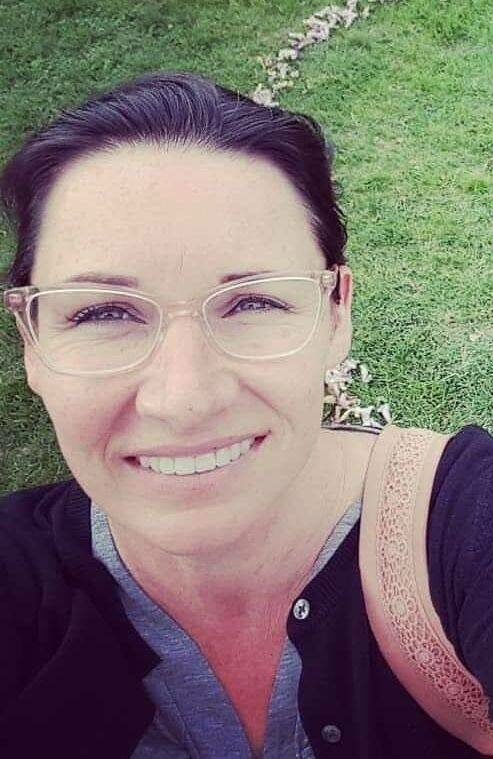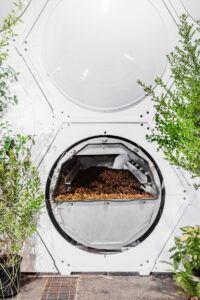Natural organic reduction, otherwise known as human composting, will be legal in California come 2027, thanks to recent legislation. Funeral homes are starting to weigh their options.
They could offer the composting service either by doing it themselves or contracting it out. Or they could eschew that service entirely.
Long Beach-based DIY Dying, a customized before and after death-care service, is one company that is already partnering with others to provide human composting.

Shawn LaValleur-Adame, the funeral director of DIY Dying, uses Washington-based Herland Forest Natural Burial Cemetery as a way of offering human composting to her clients in southern California, where such services are not yet available.
According to the DIY Dying website, the forwarding of remains for human composting at Herland Forest costs a base price of $5,500. Then, the natural organic reduction service conducted by Herland Forest is completed for $3,000.
Human composting will be legal in a little more than four years following the signing of Assembly Bill 351 last month by Gov. Gavin Newsom. The lead time will allow the Cemetery and Funeral Bureau, a division of the state Department of Consumer Affairs, to create regulations for the program. It will also give time for mortuaries, crematoriums, and human-composting providers to create their business models for the change.
The regulations may well determine the decision for many funeral homes. For example, if regulations allow only licensed funeral homes, and not consumers, to use the services of organic reduction specialists, then many funeral homes may choose to contract out the service to the new providers. But if regulations allow consumers to go directly to the human composting companies, then funeral homes may feel compelled to compete by creating their own composting facilities – assuming regulations allow that.
The cost is another factor. DIY Dying offers direct cremations for a base price of $825.
But the average cost of a cremation plus a funeral service in California is about $5,000, according to online sources. The cost of a funeral with embalming and a casket is about $7,300, but that does not include a burial plot and headstone, which cost thousands more, typically.
Meanwhile, the cost of composting reportedly is in the range of $5,000 to $7,000. But since the process has been legal for only a short time in Colorado, Washington, Oregon and Vermont, the pricing may fluctuate until a market equilibrium is attained.
Of course, once the price settles out, if funeral homes determine there is too little profit in composting to offset the additional costs of providing it, they may decide not to offer it.
Little experience
Seattle-based Recompose, a funeral home specializing in human composting, was founded in 2017; the process was legalized in Washington in 2020. Katrina Spade, founder and chief executive of the company, said that death-care businesses have largely contracted out to companies such as hers to provide human composting.
“I think as consumers demand more ecologically-focused death-care options, funeral homes all over the place are going to want to offer those,” Spade said. “Whether it’s partnering with a company like Recompose to get their clients to us or whether it’s licensing the (human composting) technology from a company like Recompose — (funeral homes) are investigating those kinds of options.”
Spade’s company plans to open a facility in California when the law goes into effect in 2027.
There are multiple variables that California death-care businesses will need to consider when human composting becomes legal, according to Spade. She noted that human composting is a significantly different process from burial and cremation.

Recompose has been composting human bodies for nearly two years and was the first facility in the country to do so. Its process involves placing the body in a metal cylinder along with some organic material such as alfalfa and straw. Over 30 days, the barrel is regularly infused with oxygen and is occasionally turned. The decomposition process raises the temperature in the vessel to 150 degrees Fahrenheit and breaks down the remains into soil.
The process creates a surprising amount of material – about a cubic yard, enough to fill the bed of a pickup truck. At Recompose, some families have taken a small amount of remains to place in an urn and donated the rest for reforestation purposes.
Spade said that since operators tend to bodies for about a month and a half, the process creates higher costs and staffing requirements. The base cost of the process is $7,000. Contrastingly, cremation takes a few hours to complete, usually.
Staff shortages
Providing the staff to operate and oversee such technology could prove a challenge. In a recent interview with CNN Business, Leili McMurrough, program director at Worsham College of Mortuary Science in Wheeling, Illinois, said the staff shortage in the funeral industry is so serious that there is a 90% job placement rate for graduates of funeral service programs.
Caitlyn Hauke, a board member of the Green Burial Council, a Placerville-based nonprofit that advocates for ecologically sensitive funerals, said she is not yet sure if human composting will have a significant impact on the profits of some businesses in the death-care industry.
Hauke said that two factors will play large roles in the increased adoption of human composting — availability and cost.
“More states will need to pass laws allowing for human composting, more providers of the service will have to come on board, and while it is not the most expensive option, there is a cost associated with the service that may not be feasible for everyone,” Hauke said.
LaValleur-Adame added that there are other options at play. She said that the decision of what to do with loved ones or where to place their remains after composting may also be a challenge for people considering the option.
“The concept for this is difficult in itself to explain to people, having only been available for humans for a year or so,” LaValleur-Adame said. “For it to already be making this kind of headway in legislation is already fantastic. I think if we talk more about greener options as a whole, it might gain even more headway.”
